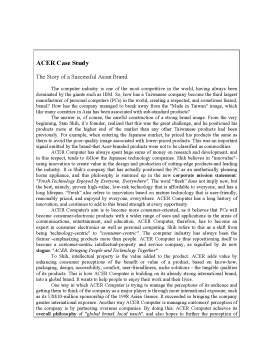Extras din proiect
INTRODUCTION
1.1. What is a knowledge-based society?
According to political and scientific statements, we are living in knowledge-based societies; we are knowledge-based workers; we are working in knowledge-intensive sectors and we are producing knowledge-intensive services. Nowadays we are part of knowledge-based networks and we are practicing knowledge-based co-operations in knowledge-based communities (Wyssusek 2004). Every day we combine, generate, protect, create, transfer, codify and save knowledge.
Also, recent rapid advances in science and technology as well as globalisation pressure mean that modern economies are increasingly based on knowledge. The speed at which knowledge is renewed has made it a major constituent of modern economy and a basic organizational principle in the new society. Knowledge has become the most important production factor in modern economy. As a consequence, knowledge :
- represents the basis of power exertion
- generates productivity growth
- ensures business competitiveness.
This is why since 1989, Peter Drucker argued that “the transition of the developed capitalist countries thorough the knowledge based society was the biggest change that took place into the modern world”.
A knowledge-based economy is one in which the generation and exploitation of knowledge play the predominant part in the creation of wealth.
It can be argued that the knowledge economy differs from the traditional economy in several key respects:
- The economy is not one of scarcity, but rather of abundance. Unlike most resources that become depleted when used, information and knowledge can be shared and actually grow through application.
- The effect of location is strongly diminished in many economic activities because, by using appropriate technology and methods, there can be easily created virtual marketplaces and virtual organizations that offer benefits of speed, agility, round the clock operation and global reach.
- Pricing and value depends heavily on context. Thus, the same information or knowledge can have vastly different value for different people or even to the same person at different times.
- A key component in a knowledge-based economy is human capital, or, more accurately, its competencies. In traditional industries most jobs require employees to learn how to perform routine functions, which, for the most part, remain constant over time. In the knowledge-based economy, rapid changes force workers constantly to acquire new skills and to update their skills throughout their lifetime.
1.2. What are intangible assets?
Intangible assets are defined as identifiable non-monetary assets that cannot be seen, touched or physically measured, which are created through time and/or effort and that are identifiable as a separate asset. There are two primary forms of intangibles:
- legal intangibles, such as trade secrets (e.g., customer lists), copyrights, patents, and trademarks
- competitive intangibles, such as knowledge activities (know-how, knowledge), collaboration activities, leverage activities, and structural activities.
Legal intangibles are known under the generic term intellectual property and generate legal property rights defensible in a court of law. Competitive intangibles, whilst legally non-ownable, directly impact effectiveness, productivity, wastage, and opportunity costs within an organization - and therefore costs, revenues, customer service, satisfaction, market value, and share price. Human capital is the primary source of competitive intangibles for organizations today. Competitive intangibles are the source from which competitive advantage flows, or is destroyed.
Consequently, economic competitiveness depends crucially on how well countries and firms make use of their own intangible assets, such as employee knowledge, skills and creativity, know-how, brands, trademarks, as well as their ability of continuously improving them.
2. INTELLECTUAL PROPERTY
2.1. BRANDS
A brand is the identity of a specific product, service, or business. A brand can take many forms, including a name, sign, symbol, color combination or slogan. The word brand began simply as a way to tell one person's cattle from another by means of a hot iron stamp. A legally protected brand name is called a trademark. The word “brand” has continued to evolve to encompass identity - it affects the personality of a product, company or service.
Preview document
Conținut arhivă zip
- Towards a Knowledge-Based Society.doc
























